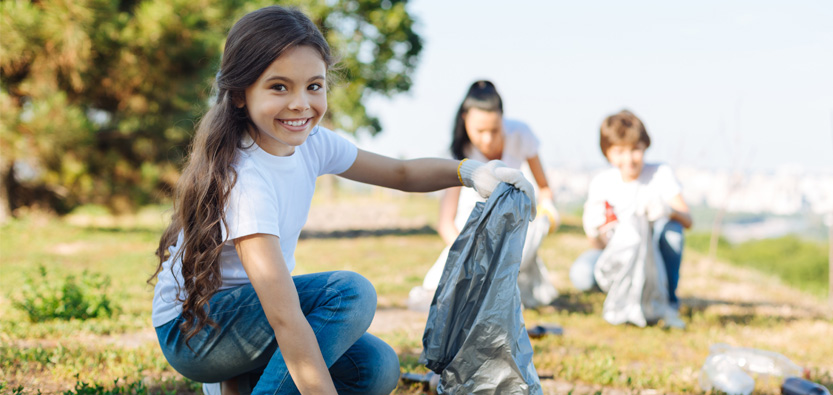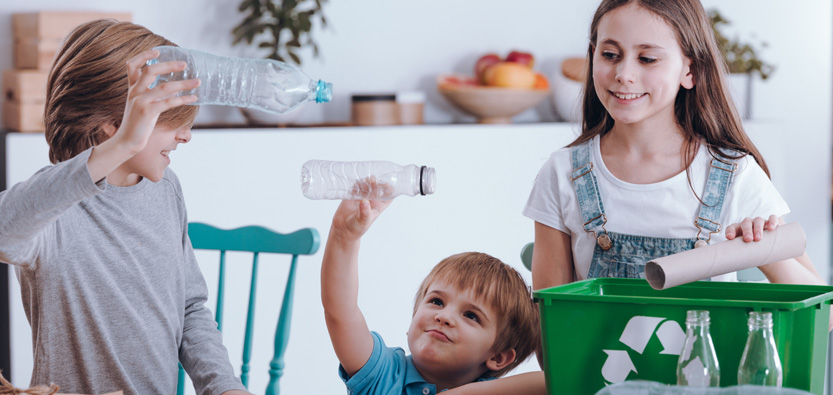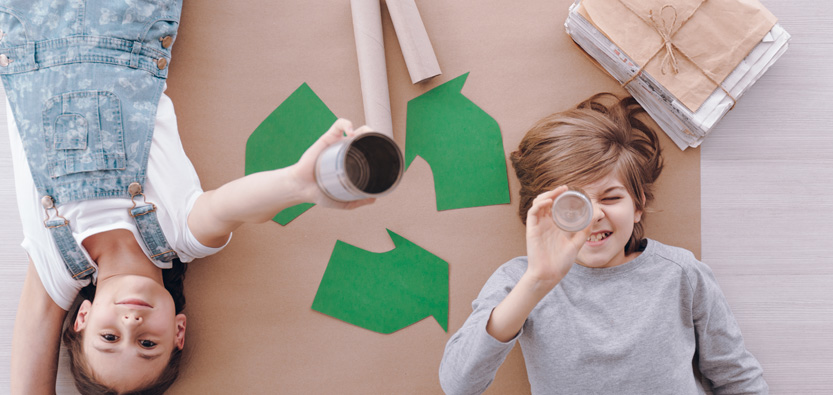
Teaching kids about recycling is not only a responsible choice for the environment but also a valuable lesson that can shape their habits for a lifetime. By introducing recycling in a friendly and informative manner, you can instill a sense of responsibility and care for the planet in your children. Here are some easy and effective ways to get started on the recycling journey with your little ones.
-
Set an Example
Children are incredibly observant, and they learn by imitating the actions of the adults around them. To teach them about recycling, start by setting a positive example yourself. Show them how to separate recyclables from regular trash and explain why it’s important. Whether you have recycling bins at home or you visit a local recycling center, involve your kids in the process. This hands-on experience will help them understand that recycling is a normal part of daily life.
-
Talk About the Environment
Kids are naturally curious, and they love asking questions about the world around them. Use their curiosity as an opportunity to have a conversation about the environment. Explain in simple terms why recycling matters – how it helps protect animals, keep the air clean, and preserve natural resources. You could even show them real-life examples, like demonstrating how some materials never break down or sharing pictures of the impact of pollution on oceans and wildlife.

-
Give them Some Stats
Numbers and facts can be powerful tools to convey the significance of recycling to children. Share age-appropriate statistics that they can relate to. For instance, explain how recycling one aluminum can saves enough energy to power a TV for three hours. Such relatable facts can make recycling feel tangible and impactful to them.
-
Get the School Involved
Education is a collaborative effort between home and school. Reach out to your child’s school and explore ways to integrate recycling education into their curriculum. Encourage teachers to discuss recycling, sustainability, and waste reduction in the classroom. You could also propose recycling initiatives or projects that involve students, fostering a sense of community and shared responsibility.
-
Make it Fun
Transforming recycling into a game can make the learning process enjoyable for kids. Challenge them to sort different materials into the right recycling bins as quickly as they can. Turn it into a friendly competition to see who can sort the items fastest and most accurately. Adding an element of fun can turn recycling into an exciting activity rather than a chore.

-
Get Crafty
Children love to get creative, and recycling provides a perfect opportunity for that. Collect clean and safe recyclable materials like cardboard, plastic containers, and cans. Then, encourage your kids to use their imagination to craft something new out of these items. From building model houses with popsicle sticks to creating robot costumes from cardboard boxes, the possibilities are endless.
-
Reuse
Teach your kids that recycling isn’t the only way to reduce waste. Reusing items is just as important. Show them how everyday items can be repurposed. For instance, using jam jars as drinking glasses or turning old newspapers into pet bedding. By demonstrating the value of reusing, you help them see that recycling is part of a broader effort to minimize waste.

As parents and guardians, it’s our responsibility to nurture a sense of environmental consciousness in the next generation. Teaching kids about recycling goes beyond just sorting trash – it’s about cultivating a mindset that respects the planet and its resources. By setting an example, having open conversations, and infusing creativity and fun into the process, we can make recycling an engaging and habitual part of our children’s lives. So we start with ourselves and make a difference not only outside but also inside the house, teaching our children to recycle.
Strauss Water, a company governed by the principles of ecological management, holds a well-established philosophy on sustainable development and recycling. In closing, we must all remember that the planet does not belong to us. We have borrowed it for a while, with our highest debt to hand it over better to our children. These small, everyday actions, when combined with the efforts of conscious companies and individuals, can collectively create a significant impact, paving the way for a greener and more sustainable future. Let’s embark on this recycling journey with our kids, inspiring them to be the change-makers our world needs.